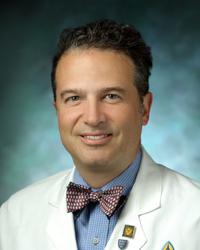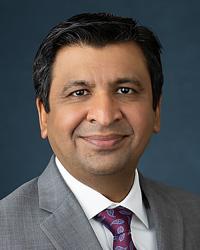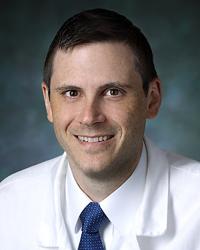Research Lab Results
-
James Sham Lab
Research in the James Sham Lab focuses on pulmonary arteries. Studies include local calcium signaling in the pulmonary arteries and transient receptor potential (TRP) channels in pulmonary arterial smooth muscle cells. We’re also interested in calcium regulation in chronic hypoxic pulmonary hypertension.
-
Jamie Murphy Lab
The Jamie Murphy Lab conducts research on post-cesarean section pain management and post-partum hemorrhage. We also explore topics around post-partum analgesia.
-
Joanne Shay Lab
The Joanne Shay Lab primarily conducts research on pediatric pain management techniques. Our studies have explored pain management in special-needs children and patients, and we have studied non-traditional pain management methods, such as regional anesthesia and peripheral nerve blocks in children, medical acupuncture, and remote anesthesia services. We also have an ongoing interest in the business of medicine. -
James Fackler Lab
Research in the James Fackler Lab explores the operational side of the hospital environment, seeking ways to optimize patient care and physician decision-making. Our work includes building a mathematical model of how patients move throughout a hospital, which we believe will help hospitals better predict the influx of emergency cases and therefore optimize resource preparation and scheduling of elective procedures. We also research data acquisition and data mining in the operating room and intensive care unit, with a goal of identifying patterns and trends. -
Jungsan Sohn
Dr. Sohn's lab is interested in understanding how biological stress-sensors are assembled, detect danger signals and initiate stress response. Innate immunity is the first line of defense against invading pathogens in higher eukaryotes. We are using in vitro quantitative biochemical assays and mutagenesis and x-ray crystallography to investigate the underlying operating principles of inflammasomes, a component of the innate immune system, to better understand biological stress sensors. -
Computational Neuroscience Laboratory
In the computational neuroscience Laboratory, we construct quantitative models of biological nervous systems that are firmly based on their neurophysiology, neuroanatomy and behavior, and that are developed in close interaction with experimentalists. Our main interest is neuronal function at the system level, reflecting the interaction of subsystems to generate useful behavior. Modeling is particularly important for understanding this and other system-level functions, since it requires the interaction of several pathways and neural functions. One of the functions we study is selective attention--that is, the capability of higher animals to scan sensory input for the most important information and to discard all other. Models of the neuronal basis of visual selective attention are constructed by simulating them on digital computers and comparing the results with data obtained from the visual and somatosensory systems of primates. We pay particular attention to the mechanisms involving the implementation of neural mechanisms that make use of the temporal structure of neuronal firing, rather than just the average firing rate. -
Chirag Parikh Lab
Dr. Parikh's research focuses on the translation and validation of novel biomarkers for the diagnosis and prognosis of acute kidney injury. Progress in kidney diseases has been hamstrung by significant heterogeneity within the current disease definitions, which are largely based on serum creatinine. Dr. Parikh's research has addressed this critical challenge by developing biomarkers of renal tubular injury, repair, and inflammation to dissect this heterogeneity. He has assembled multicenter longitudinal prospective cohorts for translational research studies across several clinical settings of acute kidney injury and chronic kidney disease for the efficient translation of novel biomarkers.
His research is dedicated to the process of applying discoveries generated in the laboratory and in preclinical experiments, the development of clinical studies, and the design of clinical trials. Dr. Parikh's studies have refined the clinical definition in perioperative acute kidney injury and hepatorenal syndrome, developed strategies to reduce kidney discard in deceased donor transplantation, and advanced regulatory approvals of kidney injury biomarkers. He has also developed biomarkers to identify rapid progressors of early diabetic kidney disease before derangements in serum creatinine. Dr. Parikh's research goal is to translate our understanding of pathophysiological mechanisms into clinical practice and improve the outcomes in patients with kidney disease.
Dr. Parikh has also been the recipient of numerous honors, including the 2017 Young Investigator Award from the American Society of Nephrology. -
Chordoma Lab
Chordoma research is led by a comprehensive team including Gary Gallia, M.D., director of the Neurosurgery Skull Base Tumor Center. The laboratory focuses on developing new therapies for brain and skull base tumors, and has established the first primary skull base chordoma xenograft mouse model. The team is also exploring high throughput drug screening using the chordoma model, and the molecular pathways responsible for tumor maintenance and growth. -
Christian Merlo Lab
Work in the Christian Merlo Lab includes studies on pulmonary arteriovenous malformations, outcomes in lung transplantation and treatment of cystic fibrosis (CF), and HIV-related pulmonary disease. We have studied methods of diagnosing and managing pulmonary arteriovenous malformations as well as the outcomes of adult CF patients who are infected with multiple antibiotic-resistant Pseudomonas aeruginosa. Our recent research has also explored recipient and donor variables in the success or failure of lung transplants, and ways in which national healthcare delivery systems impact lung transplant outcomes for CF patients.
-
Christine Durand Lab
Dr. Christine Durand, assistant professor of medicine and oncology and member of the Johns Hopkins Kimmel Cancer Center, is involved in clinical and translational research focused on individuals infected with HIV and hepatitis C virus who require cancer and transplant therapies. Her current research efforts include looking at outcomes of hepatitis C treatment after solid organ transplant, the potential use of organs from HIV-infected donors for HIV-infected solid organ transplant candidates, and HIV cure strategies including bone marrow transplantation. Dr. Durand is supported by multiple grants: • R01 from the National Institute of Allergy and Infectious Diseases (NIAID) to study HIV-to-HIV organ transplantation in the US. • K23 from the National Cancer Institute (NCI) to study antiretroviral therapy during bone marrow transplant in HIV-1 infection. • U01 from the NIAID to study HIV-to-HIV deceased donor kidney transplantation. U01 from the NIAID to study HIV-to-HIV deceased donor liver transplantation.



